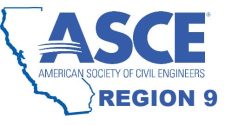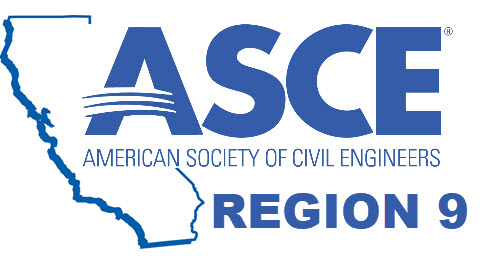Legislative Update Richard Markuson ASCE Region 9 Legislative Advocate |
|
Important Dates:
- September 3 – ASCE/APWA Legislative Day (Sacramento)
- September 2-12 – Floor session only
- September 12 – Last day for each house to pass bills. Interim Study Recess begins at end of this day’s session
- October 12 – Last day for Governor to sign or veto bills passed by the Legislature on or before Sept. 12 and in the Governor’s possession after Sept. 12
- January 1, 2026 Statutes take effect
- January 5, 2026 Legislature reconvenes
Legislation
APM/DB/CMaR
SB 272 Becker, D SB 272 authorizes the San Mateo County Transit District (SamTrans) to enter into job order contracts (JOCs). Requires JOCs to be subject to the project labor agreement (PLA) between SamTrans and the San Mateo Building Trades Council or an amendment or extension of that agreement. (Based on 08/20/2025 text) 08/28/2025 – Read third time. Passed. Ordered to the Senate. In Senate. Concurrence in Assembly amendments pending. ASCE R9 Position: Support
CEQA
AB 1456 Bryan, D This bill exempts public agency-led vegetation fuel management projects from CEQA. It requires a lead agency to file a notice of exemption if a project fits this category. (Based on 07/18/2025 text) 08/29/2025 – In committee: Held under submission. ASCE R9 Position: Support
Infrastructure
SB 74 Seyarto, R SB-74 will establish the Infrastructure Gap Fund, which, upon appropriation by the Legislature, provides grants of up to 20 percent of necessary remaining funding to cities and local agencies for critically delayed and vital infrastructure projects— including but not limited to roads, schools, and broadband— throughout California (Based on 04/07/2025 text) 08/29/2025 – August 29 hearing: Held in committee and under submission. ASCE R9 Position: Support
SB 769 Caballero, D Establishes the Golden State Infrastructure Corporation (Corporation) within the State Treasurer’s Office as a not-for-profit corporation to finance infrastructure projects. (Based on 07/02/2025 text) 08/29/2025 – From committee: Do pass. (Ayes 11. Noes 1.) (August 29). ASCE R9 Position: Support
Licensure
AB 1341 Hoover, R AB 1341 (Hoover) clarifies that existing provisions of the Contractors’ State License Law, which make violations of the “building laws of the state” subject to discipline by the Contractors’ State License Board, include the unlicensed practice of architecture, engineering, and land surveying. This clarification protects the public by helping prevent unlicensed practice in these critical disciplines. (Based on 07/02/2025 text) 08/25/2025 – In committee: Referred to suspense file. ASCE R9 Position: Support
Public Works
AB 339 Ortega, D Like AB 2557 from 2024, which failed, this bill may violate Article XXII of the Constitution regarding architecture and engineering (AE) services. Public agencies must notify employee bargaining organizations before contracting for various services, including AE, currently performed by agency employees. Per fiscal analysis, “Costs of an unknown, but potentially significant amount, more than $150,000, across local agencies (nearly 4,000 cities, counties, and special districts) to plan and provide advance notice before procuring a contract, meet and confer with the recognized employee organization, and reopen MOU negotiations. If the Commission on State Mandates determines this bill’s requirements to be a reimbursable state mandate, the state would need to reimburse these costs to local agencies (General Fund).” (Based on 08/29/2025 text) 08/29/2025 – From committee: Amend, and do pass as amended. (Ayes 5. Noes 2.) (August 29). Read second time and amended. Ordered returned to second reading. ASCE R9 Position: Oppose
Water
AB 638 Rodriguez, Celeste, D AB 638 requires the California State Water Resources Control Board (SWRCB) to develop guidance for using captured urban stormwater to encourage and enhance climate resilience. The SWRCB must establish statewide guidelines so existing stormwater infrastructure and future projects can provide vital non-potable water for the irrigation of public spaces. No opposition. Per Appropriations: “To meet the bill’s six-month implementation timeline, the State Water Board estimates one-time costs of approximately $2.5 million (General Fund or Waste Discharge Permit Fund). This includes roughly $1.5 million for limited-term positions to conduct public outreach and draft the required guidance, as well as $1 million in contracting costs for work associated with establishing criteria for pathogens and pathogen indicators, total suspended solids, toxics, and structural and nonstructural best management practices to reduce potential health risks to exposed populations.” (Based on 07/03/2025 text) 08/29/2025 – In committee: Held under submission. ASCE R9 Position: Support
SB 31 McNerney, D SB 31 is intended to help CA close the gap in its water needs by making it easier to use recycled water in outdoor irrigation at homes, businesses, parks, and golf courses. No opposition (Based on 06/09/2025 text) 08/29/2025 – Coauthors revised. From committee: Do pass. (Ayes 15. Noes 0.) (August 29). ASCE R9 Position: Support
SB 72 Caballero, D This bill revises the contents of the California Water Plan, which is updated every five years by the Department of Water Resources (DWR), requires DWR to develop a long-term water supply planning target for 2050, establishes an interim target to develop an additional 9 million acre-feet (AF) of water, and requires that each plan update includes specified components. (Based on 04/10/2025 text) 08/29/2025 – From committee: Do pass. (Ayes 15. Noes 0.) (August 29). ASCE R9 Position: Support
Water Quality
SB 682 Allen, D This bill prohibits a person from distributing, selling, or offering for sale covered products that contain intentionally added PFAS beginning January 1, 2027. Prohibits certain specified products that contain intentionally added PFAS unless the Department of Toxic Substances Control (DTSC) made a determination that the use of PFAS in the product is a currently unavoidable use. By banning essential materials—from heat pumps to electrical cabling—SB 682 would drive up housing costs, jeopardize safety, and further exacerbate the state’s housing crisis. (Based on 07/17/2025 text) 08/29/2025 – From committee: Do pass as amended. (Ayes 9. Noes 3.) (August 29). ASCE R9 Position: Support
Appointments
By Governor
Do not require Senate confirmation.
As chief of strategic communications, High-Speed Rail Authority: Kate Folmar, Sacramento, Democrat, founder of Kate Folmar Communications, Sacramento, since 2021. Salary: $180,000.
As chief counsel, High-Speed Rail Authority: Adam Brezine, Fairfax, Democrat, legal director at Adobe Inc. since 2022. Salary: $235,008
To the High-Speed Rail Authority Board of Directors: Jeffrey Worthe, Los Angeles, Democrat, president of Worthe Real Estate Group since 1993. Salary: $100 per diem.
Reports of Interest
Public Policy Institute of California released, “Californians and the Energy Transition,” cites its July statewide survey which found “majorities of California adults (62%) and likely voters (69%) believe that the effects of climate change have already begun to happen;” also finds “two-thirds of adults (67%) and likely voters (66%) favor reducing greenhouse gas emissions to 40 percent below 1990 levels by 2030,” while “slightly fewer favor all the state’s electricity to come from renewable energy sources by the year 2045 (62% adults; 60% likely voters),” notes that “however, 59% of Californians are not willing to pay more for electricity generated by renewable energy sources” and “half or more say that the current price of gasoline (52% adults) and the rising costs of natural gas and electric utility bills (55% adults) is a major problem personally for them.”
Little Hoover Commission released, “Opportunities and Pathways to Reform CEQA to Support Housing Development,” authored by UC Berkeley’s Possibility Lab, outlines “three primary categories of commonly recommended California Environmental Quality Act reforms:” 1. “expanding or strengthening CEQA exemptions,” including “increasing the number of statutory exemptions for various beneficial project types, such as health centers, childcare facilities, and farmworker housing;” 2. “modifying CEQA’s processes for implementation,” including “allowing for partial revisions of deficient Environmental Impact Reports rather than requiring a complete resubmission;” and 3. “reining in careless CEQA litigation,” including “ensuring more consistent legal outcomes by clarifying ambiguous aspects of the law and providing better CEQA training for judges.”
High-Speed Rail Authority released “2025 Supplemental Project Update Report”, findings include “the Authority’s current funding, coupled with the Governor’s proposal to dedicate at least $1.0 billion annually from the Cap-and-Invest program to high-speed rail through 2045, is projected to be sufficient to complete the 171-mile Merced-Bakersfield early operating segment and begin operations within the Authority’s schedule window;” also finds that “payment amounts vary significantly over the four annual funding commitment periods,” where financing the Gilroy-Bakersfield segment “over 15 years would cost $2.29 billion per year, compared to $1.63 billion per year over a 30-year term.”


